Dog Breed
Jack Russell Terrier
Friendliness
Exercise Needs
Health Issues
Barking Tendencies
Grooming Needs
Shedding Level
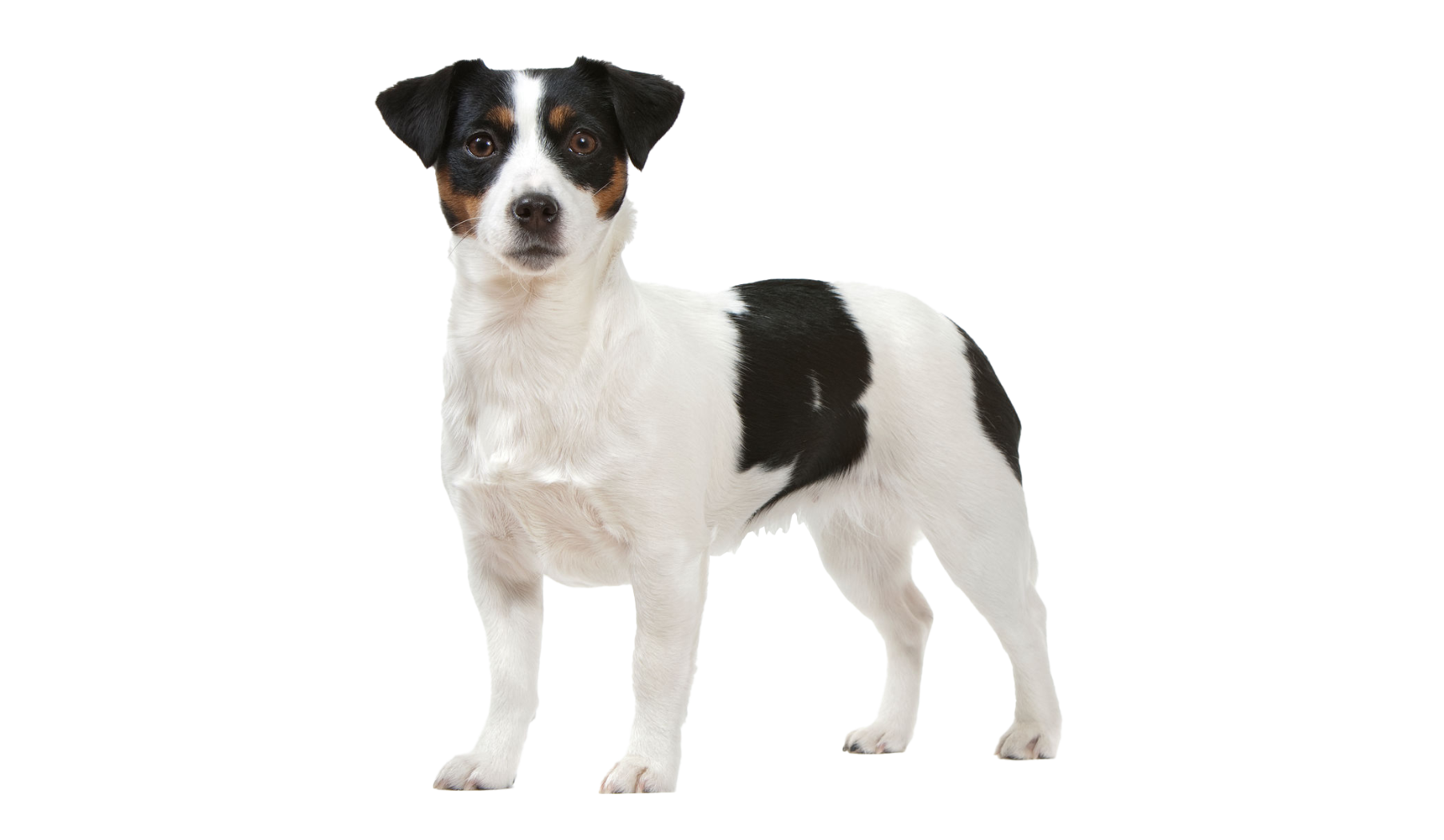

Pocket rocket
Jack Russell Terriers make good family pets, although great training and socialisation from an early age is key. They can learn to live happily alongside other dogs, but they’ll need to be introduced and socialised properly. They probably won’t ever live happily alongside cats.
Always wanting to move, chase, hunt, jump, swim, bark and dig, their energy reserves seem absolutely boundless. In fact, you’ll struggle to tire out these energetic pups. Ideal for active, experienced dog parents with the time to train and exercise them.
Caring for your Jack Russell Terrier
Nutrition
Choosing the right food
Every dog is unique. From the small, flat-faced Pug to the obesity-prone Labrador Retriever. ROYAL CANIN® Breed Health Nutrition is tailor-made to address the unique needs of pure breed dogs. These breed specific formulas benefit from the latest ROYAL CANIN® research on the selection of the best protein sources, unique nutrients and tailor-made kibbles.
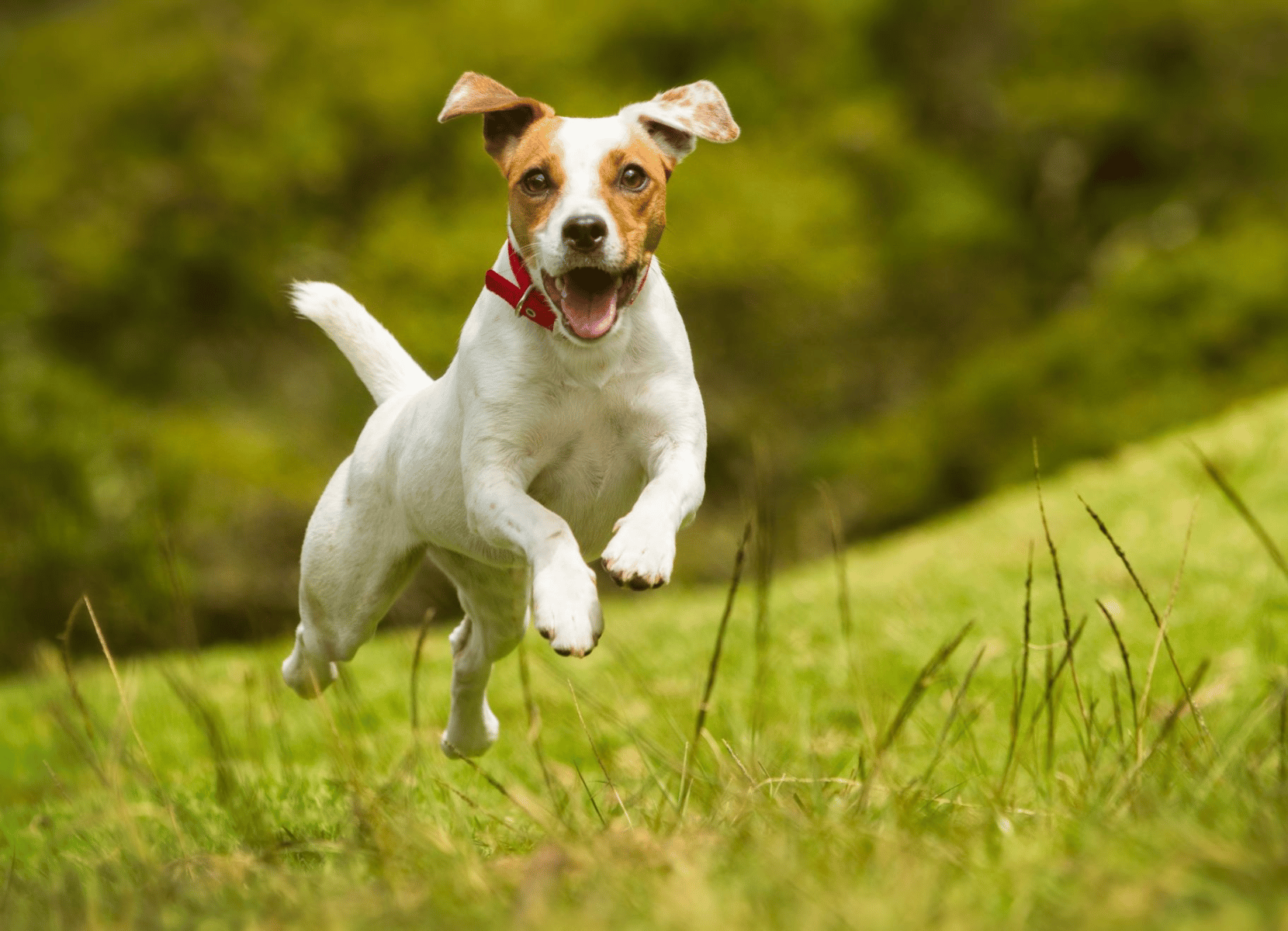
Exercising your dog
You’ll need to be high energy to keep up with your Jack Russell Terrier - they need plenty of vigorous exercise every single day. They thrive on being walked at least a few times a day, for around an hour in total.
Always keep them on a lead because of that high prey drive. A securely fenced garden or dog park where they can run around is also their idea of a good time. They’re great swimmers too.
Daily playtime counts towards their exercise time. A bored Jack Russell Terrier can spell trouble so it’s important to provide plenty of toys to ward off boredom, from ones that squeak and bounce to ones that hold tasty treats.

Training your Jack Russell Terrier
Training a Jack Russell Terrier isn’t about reigning in their natural instincts, like chasing and digging, but redirecting them towards more positive outlets. Jacks benefit from early and regular training which provides a good channel for their energy and intelligence.
To help them learn your prized veggie patch isn’t for digging, create their own sandbox that they’re allowed to dig in. Securely fence it and use different soil to what’s in the rest of the garden so they learn what’s acceptable to dig in and what isn’t.
Keen to learn new things and for mental and physical stimulation, Jack Russell Terriers are easy to train. Positive reinforcement works well, especially training treats.
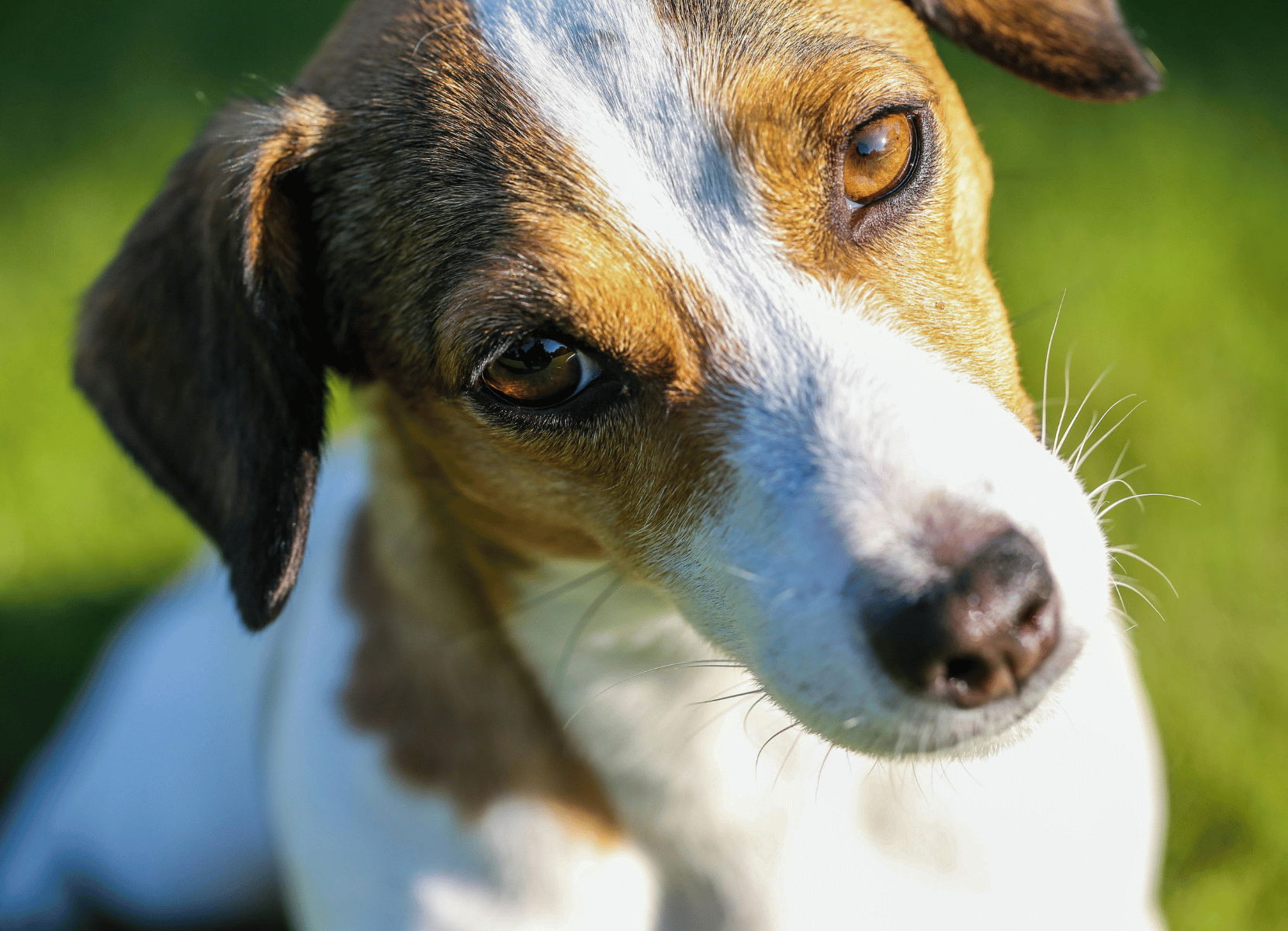
Your dog's health
By recognising health problems in Jack Russell Terriers early you can seek advice and treatment from a veterinarian.
Reduce the risk of health problems by purchasing a puppy from a responsible breeder. Always inspect breeding facilities and breeding dogs, and never buy from a distant online seller.
Health Issues to watch out for:
Patellar luxation
Legg-Calves-Perthes Disease
Compulsive Behaviours
Eye Issues
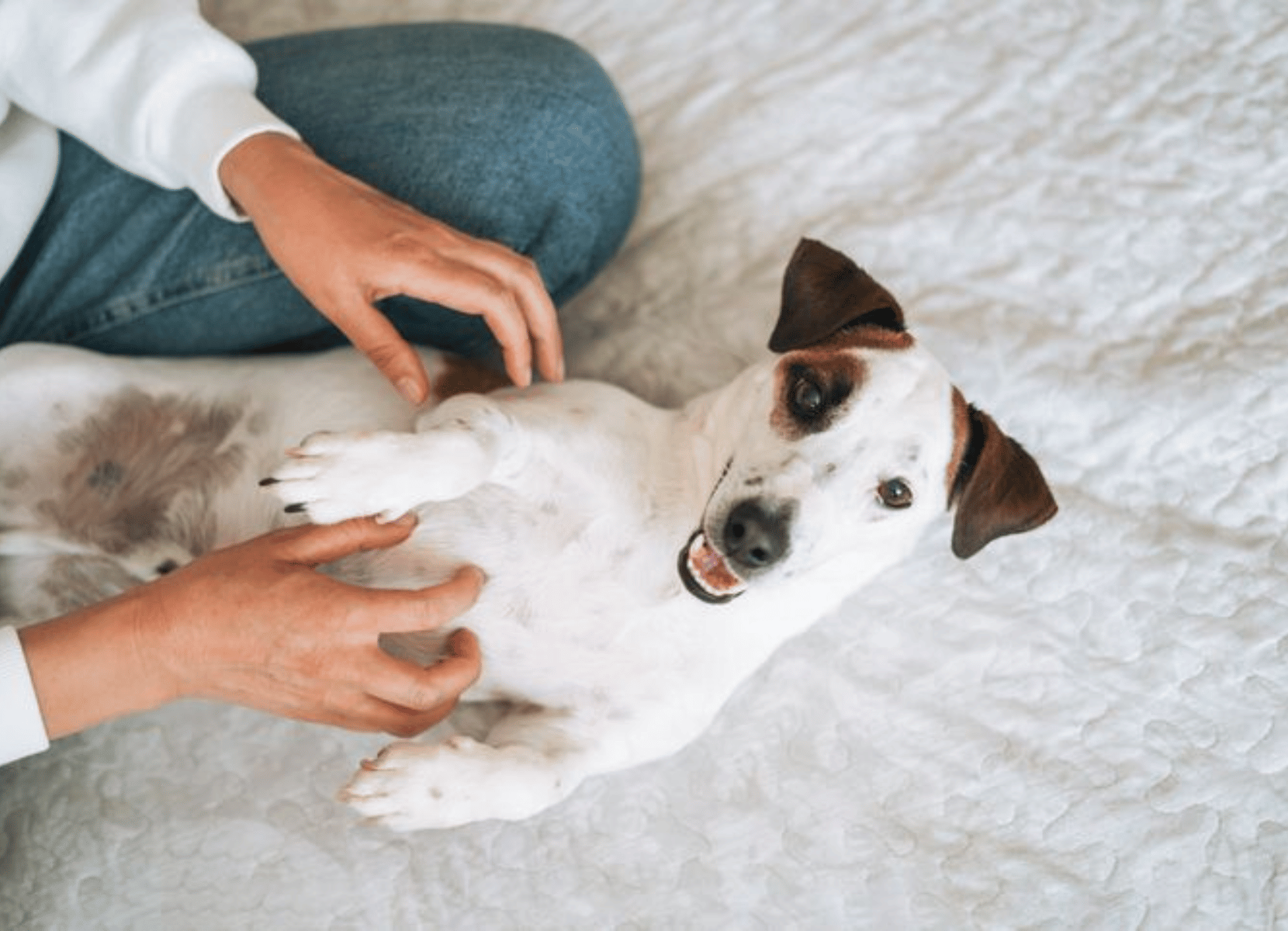
Grooming your dog
Grooming is a breeze with Jack Russell Terriers. Their coat doesn’t need much special attention and they won’t shed that much either. You might find that a deshedding tool is better than a brush, at untangling the short (and possibly wiry) fur and removing dead hair. Because their coat is so short, a groom with a brush or deshedding tool every six to eight weeks should be fine.
Their short, low-shedding coat also doesn’t need a regular bath (unless they’ve been turning your rose garden into a mud kitchen). Aim for once a month or as needed. Bath time is a good opportunity to clean those floppy ears and clip those nails.
Key characteristics of Jack Russell Terriers
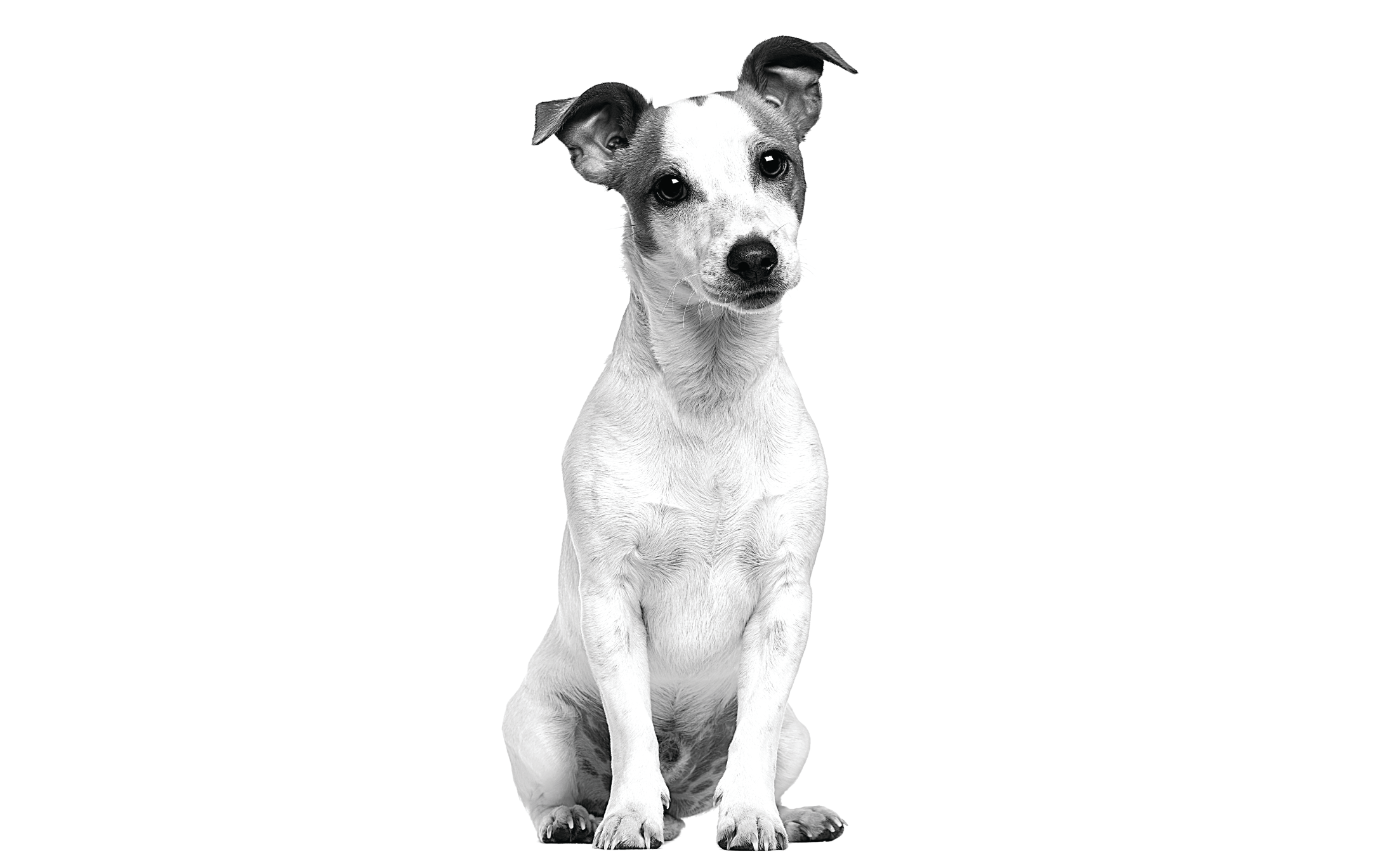
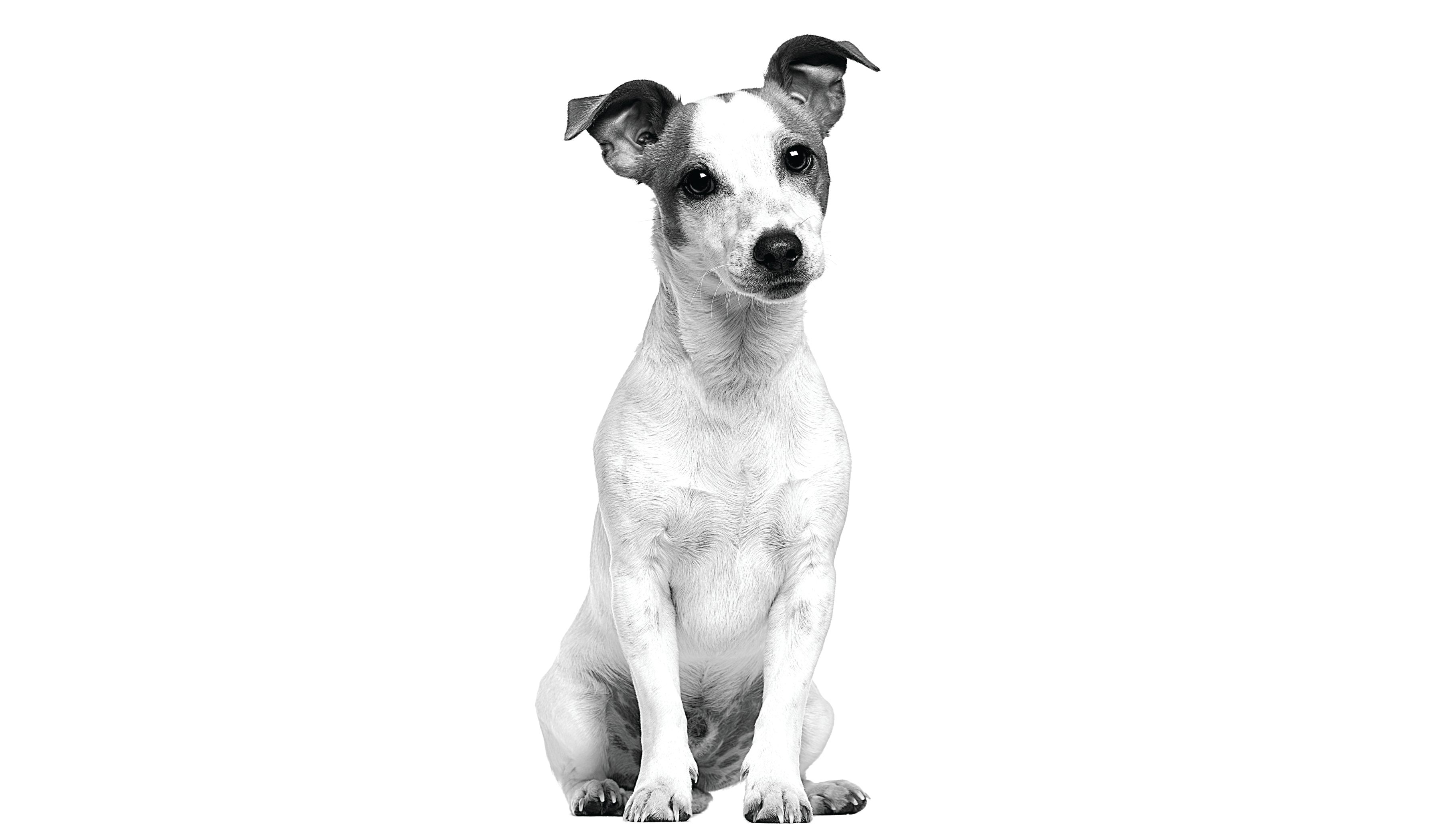
Jack Russell Terrier FAQs
Jack Russell Terriers are packed with energy and character — but there’s more to them than meets the eye. Here are five helpful answers to commonly searched questions that dive a little deeper into daily life with these bold, busy pups.
Are Jack Russell Terriers good apartment dogs?
Jack Russells can live in apartments, but only if they get enough daily exercise and mental stimulation. Without outdoor time and engaging activities, their high energy can turn into boredom and barking. They’re better suited to homes where they can explore, dig, and stretch their legs regularly.
Do Jack Russell Terriers get along with children?
Yes, when well-socialised, Jack Russells can be excellent companions for older children who understand how to play respectfully. Their energy and confidence make them great playmates, but supervision is always recommended around younger kids due to their excitable nature.
How much barking is normal for a Jack Russell Terrier?
Jack Russells are known to be vocal. They often bark out of excitement, boredom, or alertness. Training and mental enrichment can help manage excessive barking, but it’s natural for this expressive breed to be chatty.
What type of coat does a Jack Russell Terrier have?
Jack Russells can have three coat types: smooth (short and flat), rough (thick and wiry), or broken (a mix of both). All coat types are relatively low-maintenance but may require different grooming tools to manage shedding and keep them looking tidy.
Are Jack Russell Terriers hypoallergenic?
No, Jack Russell Terriers are not considered hypoallergenic. Although they shed less than some breeds, they still release dander and fur into the environment. Regular grooming and cleaning can help reduce allergens in the home.
These FAQs cover some of the lesser-known but equally important facts about Jack Russell Terriers. If you’re ready for a smart, spirited dog who’ll keep you on your toes (and laughing), a Jack Russell might just be your perfect match.

